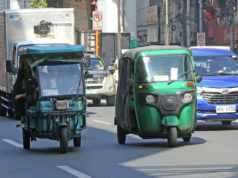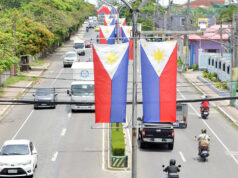Rice farmers seek assurances of funding under new law
DAVAO CITY — The Department of Agriculture (DA) will ensure that the rice industry will become more competitive as the Rice Tariffication Law comes into force.
In a public consultation Thursday on the proposed implementing rules and regulations of the new law, Agriculture Secretary Emmanuel F. Piñol said he is confident that rice farmers will be able to increase their production with the assistance that the law will provide.
Under Republic Act 11203, the government will set aside P10 billion a year for six years to help farmers increase their productivity. The goal of the law is to make prices of domestic rice competitive with imports.
The funding, which will be assessed after three years of implementation. The Rice Competitiveness Enhancement Fund (RCEF), as it is called, will be financed from tariffs on imported rice, which will be shipped in more freely under the law.
Mr. Piñol said that with the continued improvement of rice production as new rice varieties develop, rice farmers will eventually be able to compete with the rest of the world.
On the part of rice farmers, Balbino A. Alingalan told BusinessWorld that the government must, among others, help rice farmers organize themselves to better access funds from government.
Mr. Alingalan, president of the Davao Oriental Seed Producers Cooperative, said that many of the farmers are not organized, “so it is difficult for them to secure assistance from government.”
He said that even those who are organized like his group have even found it hard to access funding as requirements are stringent.
He said most farmers turn to informal lenders who provide immediate cash at high interest, “because we always need the money right away.”
“If you run to formal lenders, even those in government, it is very difficult for you to borrow because they always ask for so many requirements,” he said.
Mr. Piñol said the current pressure on rice prices is due to speculation that prices will fall, “borne out of fear by traders and millers that we will be flooded with imported rice from major rice exporting countries,” he said.
He said the DA, as mandated by the law, will ensure that all importers are registered and issued Sanitary and Phytosanitary Import Clearances (SPSIC).
He said the DA still ha the power to oversee imports and ensure that everyone follows the law.
Rice shipments sourced from the Association of Southeast Asian Nations will be charged a 35% tariff, while those coming from other countries will be levied as much as 180%. — Carmelito Q. Francisco



